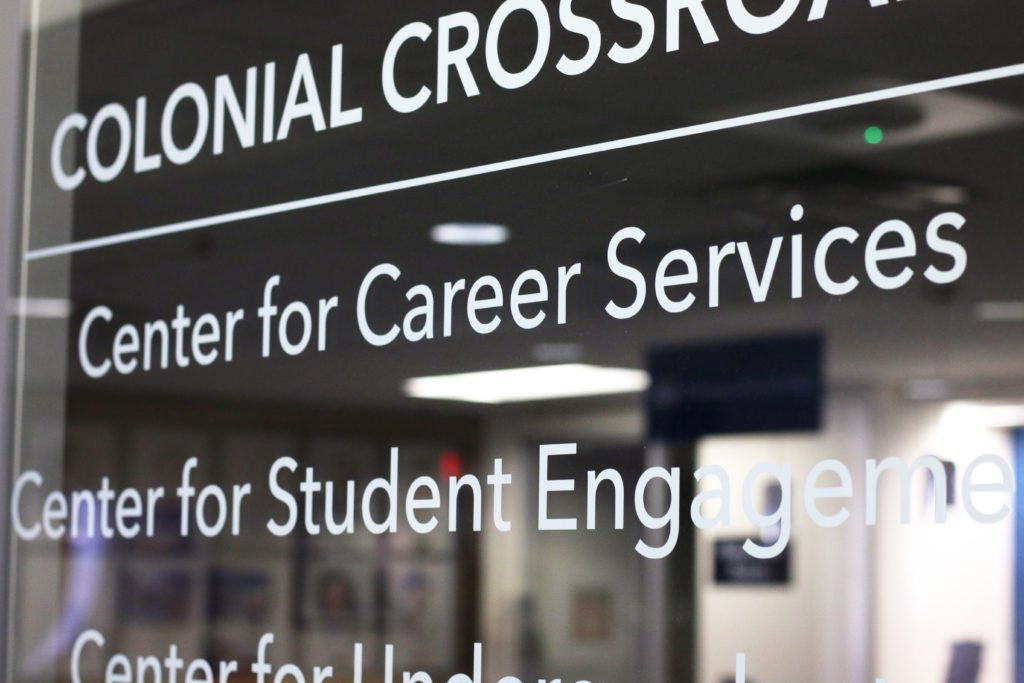The rise in student and alumni engagement with the Center for Career Services has leveled out after a large spike in growth from 2013 to 2016, officials said.
Student engagement with the center rose 3 percent from the 2015-16 academic year to the 2018-19 academic year, a far smaller jump than the nearly 50 percent growth in engagement the center experienced from academic years 2013-14 to 2015-16. Officials said the growth in student use is attributable to a shift in focus on “fewer, higher-quality programs,” but center staff continue to struggle with students who fail to attend events they register for.
Rachel Brown, the associate vice provost of University career services, said the center changed its focus after receiving feedback from students who said they felt “over-programmed.”
“We are working with student organizations to better understand student needs and partner on programs and also encourage more collaboration to reduce over-programming for students,” she said in an email.
Brown said officials have also boosted student involvement by embedding the resources offered into academic courses. Last fall, staff from the Elliott School of International Affairs’ Academic Advising Office and the center launched a first-year experience course that includes a professional development component.
Brown said employer engagement with the career services center, which includes participation in job fairs and recruiting events, rose 18 percent from 2015 to 2019, during which officials switched from an old job search platform to Handshake.
She added that the “strong job market” has prompted career center staff to launch “new and different ways” for employers to recruit GW students, like last week’s Media, Journalism and Public Affairs Networking Fair held with Georgetown University and an inaugural STEM + Health Career Connections Fair next spring.
Brown said career center employees now offer several opportunities for students to polish skills related to applying for a job. Officials introduced summer webinars offering resources like resume advice for federal work-study students and hosted an open house during this year’s New Student Orientation that gave students further opportunities to have their resumes reviewed and practice interviewing skills.
But many students still do not attend networking and career events they sign up for on Handshake, Brown said.
She said 42 percent of registrants for events did not show up to the events during the first month and a half of the school year, an “improvement over past years.” Brown added that she expects that figure to rise as students become busier during the academic year.
In 2017, 50 to 70 percent of students did not attend employer events they had signed up for. Brown said the center updated its RSVP cancellation policy earlier this summer to continue educating students on “proper cancellation etiquette.”
The policy requires that students cancel event RSVPs 24 hours prior to the event and cancel coaching appointments 48 hours in advance on Handshake. Students who fail to meet the requirements receive a “professional reminder message,” and their Handshake accounts are blocked, according to the career services website.
“We also plan regular outreach to students who are missing too many professional and career-related events so they can make adjustments before it starts to negatively impact their career opportunities,” Brown said.
Career services experts said universities can boost student involvement in career services by encouraging engagement soon after a student arrives on campus and integrating career development into academic courses, a practice the center currently follows.
Jacob Jedamus-Denu, an employer development specialist at the University of Colorado Boulder, said career services are most helpful to students who take advantage of resources earlier in their college experience.
As more commentators predict a recession in the coming years, students who begin interacting early with career services will be better equipped to thrive in spite of the recession’s impact on the job market since career services centers monitor trends like which jobs and skills are in the highest demand, he said.
“Recessions will affect everyone,” he said. “However, students who have considered their future careers from day one of their campus experience will be much better positioned to enter the world of work than those who have not.”
Mariaton Tate, a career adviser at Illinois State University, said universities can encourage student involvement with career services by integrating them into academic programs, like the Elliott School’s first-year experience program. She added that officials can emphasize career services as part of the University’s “overall language and culture.”
“In this way, career planning and development is always a thread through the course curriculum and the student experience, so that students are thinking about their intended career paths from the time they get to campus and throughout,” Tate said in an email.





